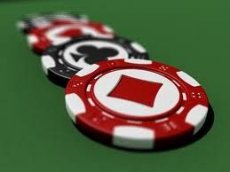From ill-considered actions at the table will help the injection of norepinephrine
Last reviewed: 23.04.2024

All iLive content is medically reviewed or fact checked to ensure as much factual accuracy as possible.
We have strict sourcing guidelines and only link to reputable media sites, academic research institutions and, whenever possible, medically peer reviewed studies. Note that the numbers in parentheses ([1], [2], etc.) are clickable links to these studies.
If you feel that any of our content is inaccurate, out-of-date, or otherwise questionable, please select it and press Ctrl + Enter.

The researchers identified a neurotransmitter, which softens the bitterness of the loss and suppresses the desire to recoup.
When it comes to addiction to alcohol, or to smoking, or to some narcotic substance, the mechanism of forming such a dependence is more or less clear. We have a specific substance, for example, the same alcohol that affects the biochemistry of nerve cells, and they begin to work differently. Accordingly, it is understandable how such a treatment: you just need to suppress the interaction of the narcotic substance with the cellular receptors. But what about psychological addictions like addiction to video games? There is no harmful molecule, which interferes with the work of our brain.
What kind of levers should you press to get rid of psychological dependence?
Researchers from Kyoto University (Japan) report that they managed to solve this problem with regard to addiction to gambling. As they write in the journal Molecular Psychiatry, the key players here are noradrenaline and the molecules-carriers of this neurotransmitter.
Scientists offered 19 volunteers to play some kind of gambling, after which the state of their brain was evaluated with the help of positron emission tomography. Some players showed a reduced content of transport molecules that carry norepinephrine. This led to the accumulation of norepinephrine in the brain. What, according to scientists, mitigated the stress of losing - a man did not suffer very much, losing some money in the game.
If the content of norepinephrine in the brain was reduced, the subject suffered greatly because of the loss of money and sought to recoup. Scientists conclude that far from always a reckless decision to recoup is taken by "free will" - sometimes we are pushed by the specificity of the chemistry of the brain.
If norepinephrine is effectively washed out of the brain, we will suffer even from the loss of the most insignificant amount, again and again trying to get it back. If we are lucky, and the molecules of norepinephrine carriers are not very active in us, then the gambler will not come out of us. In this regard, a logical question arises, can not we treat cravings for gambling with injections of norepinephrine or blockers of its transport? If the research results are confirmed, casino owners are unlikely to be delighted with this discovery.

 [
[